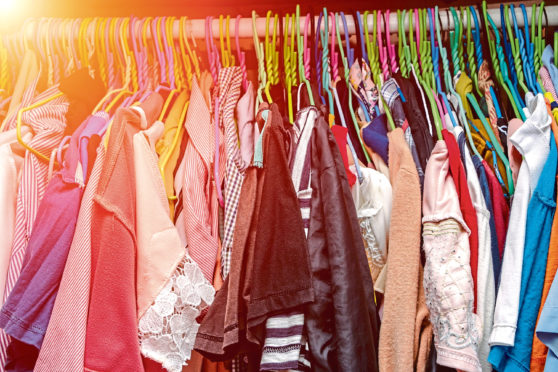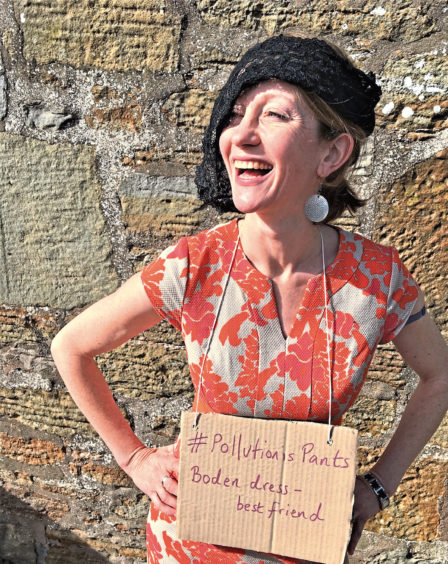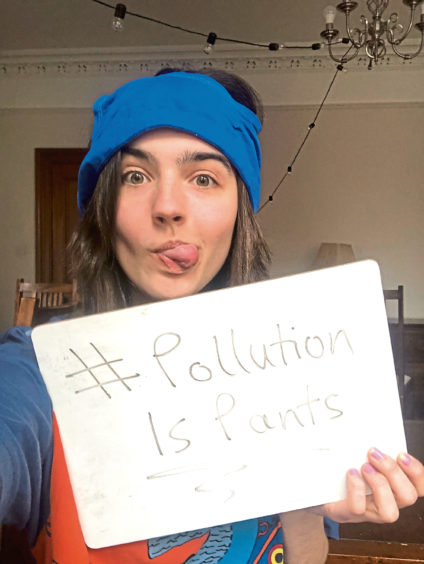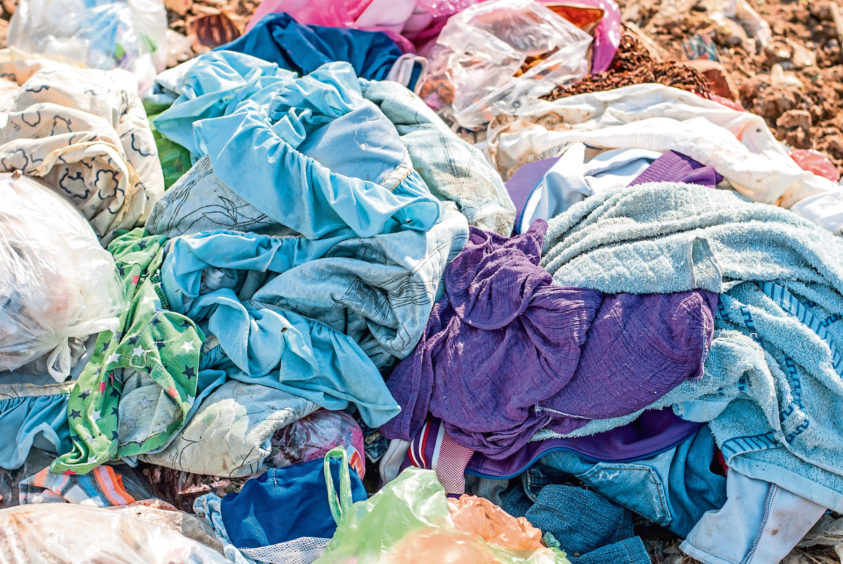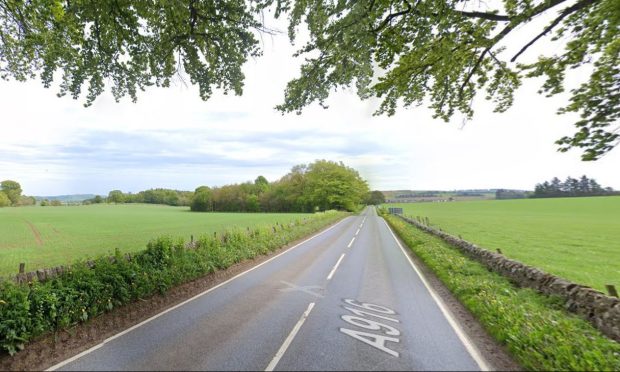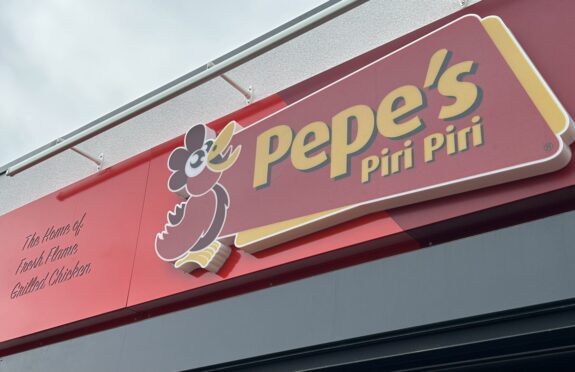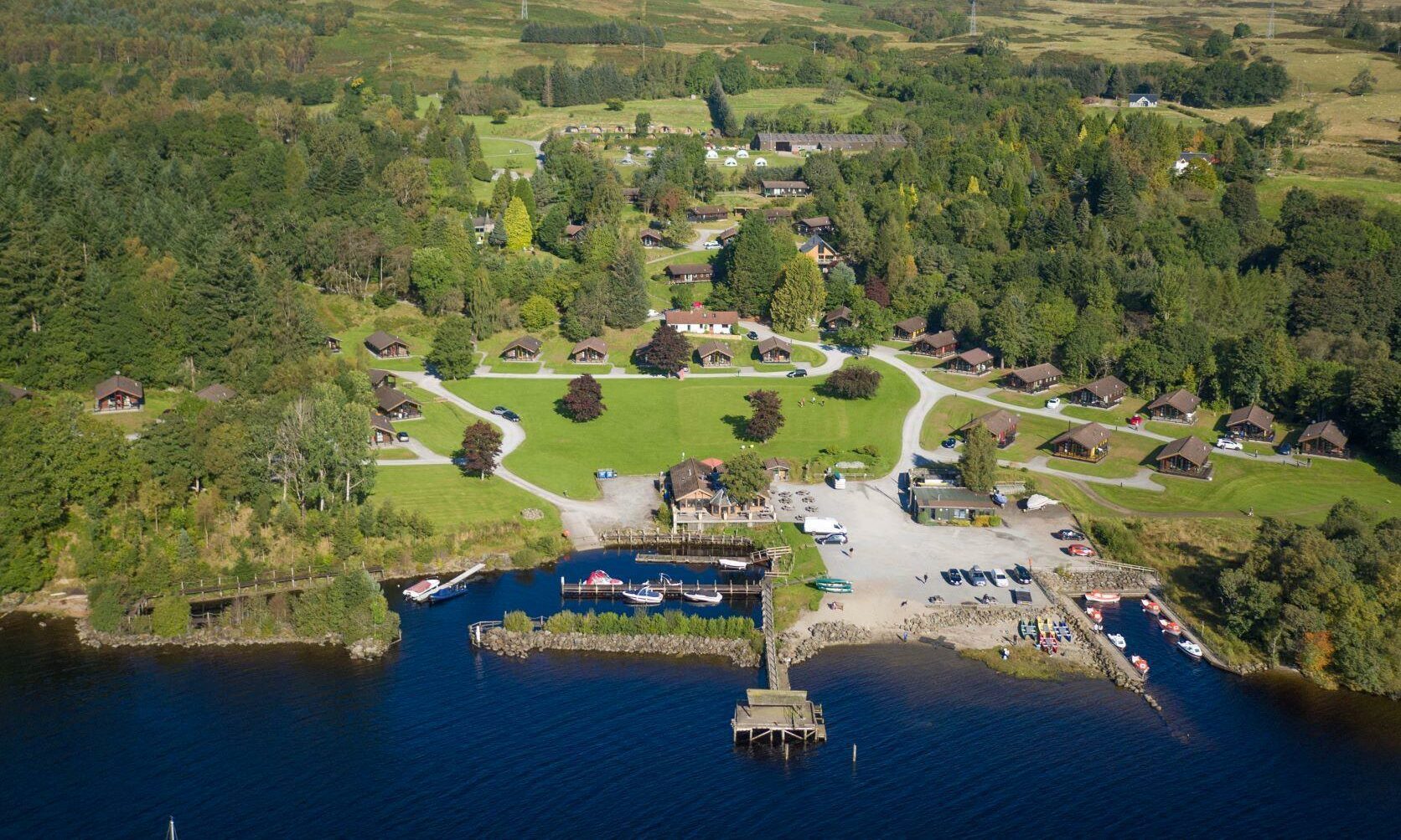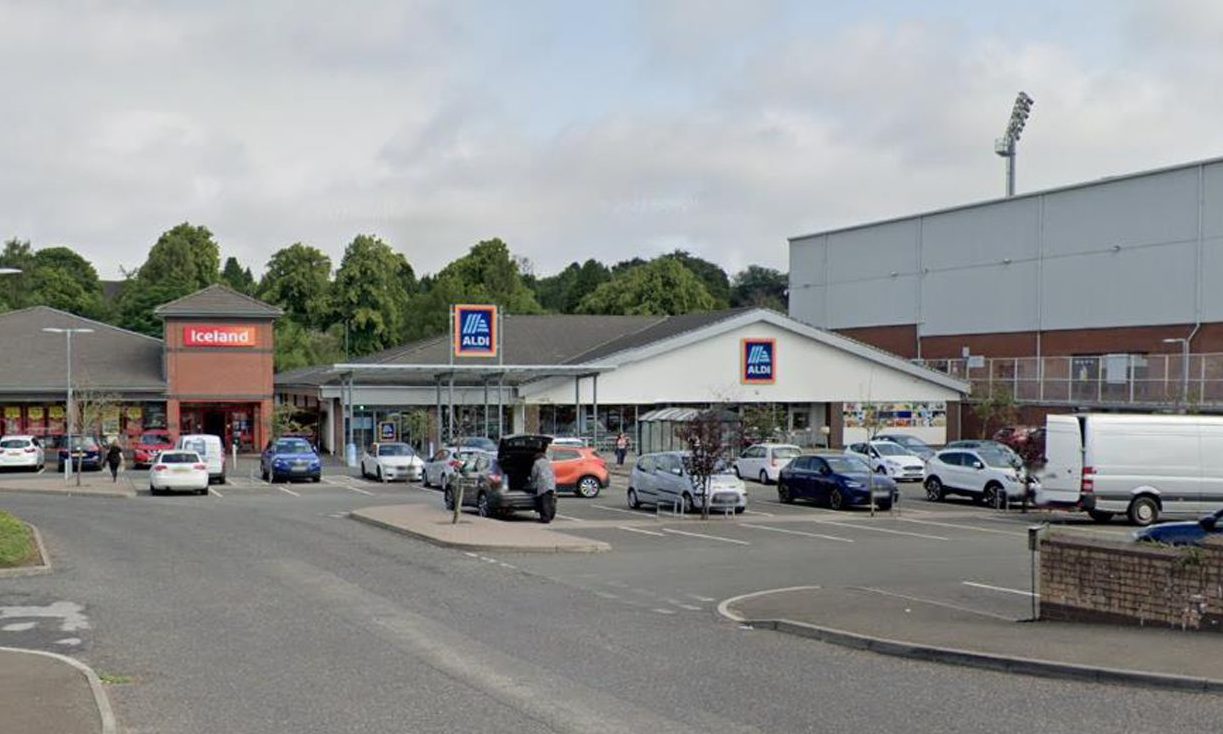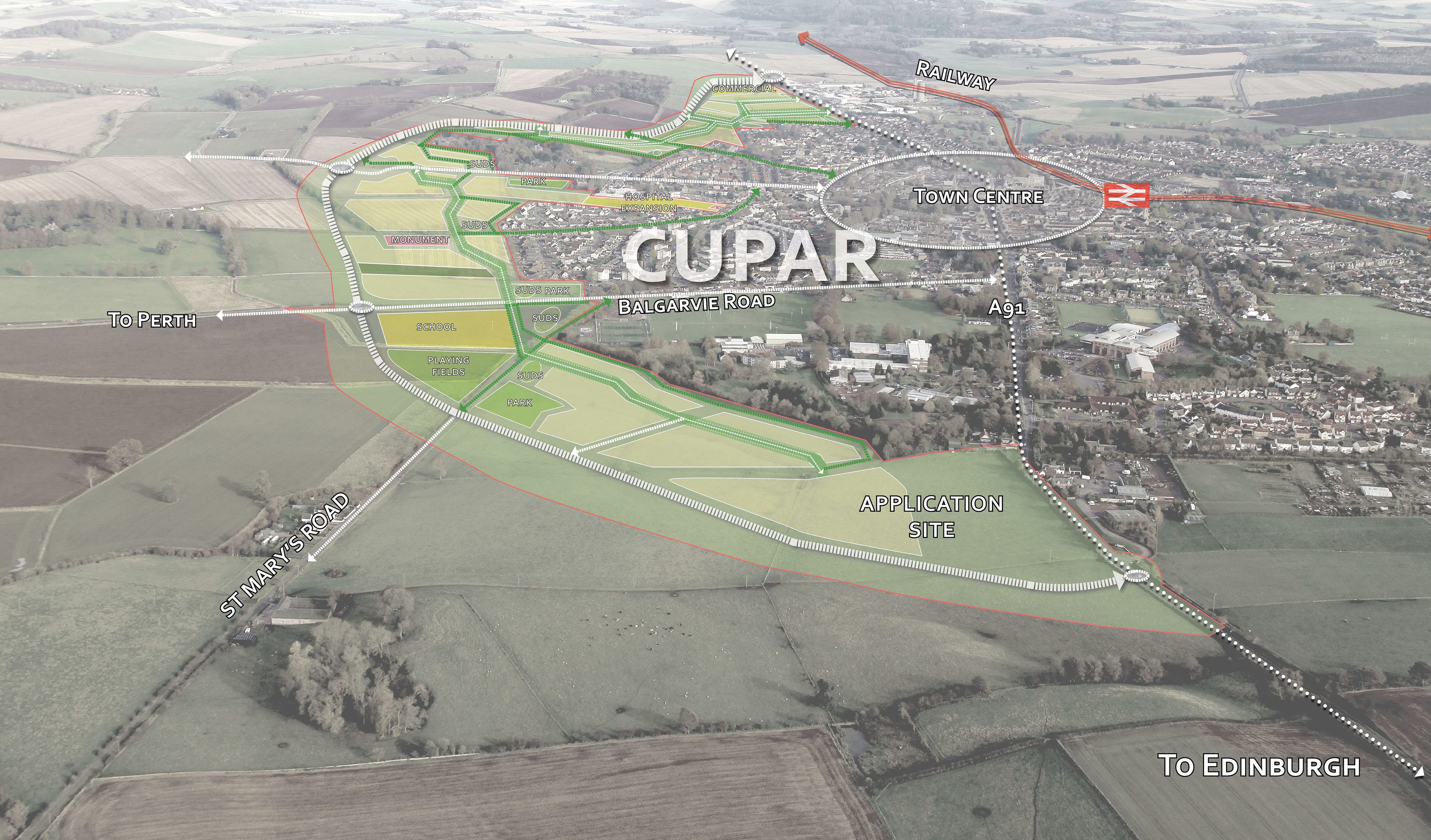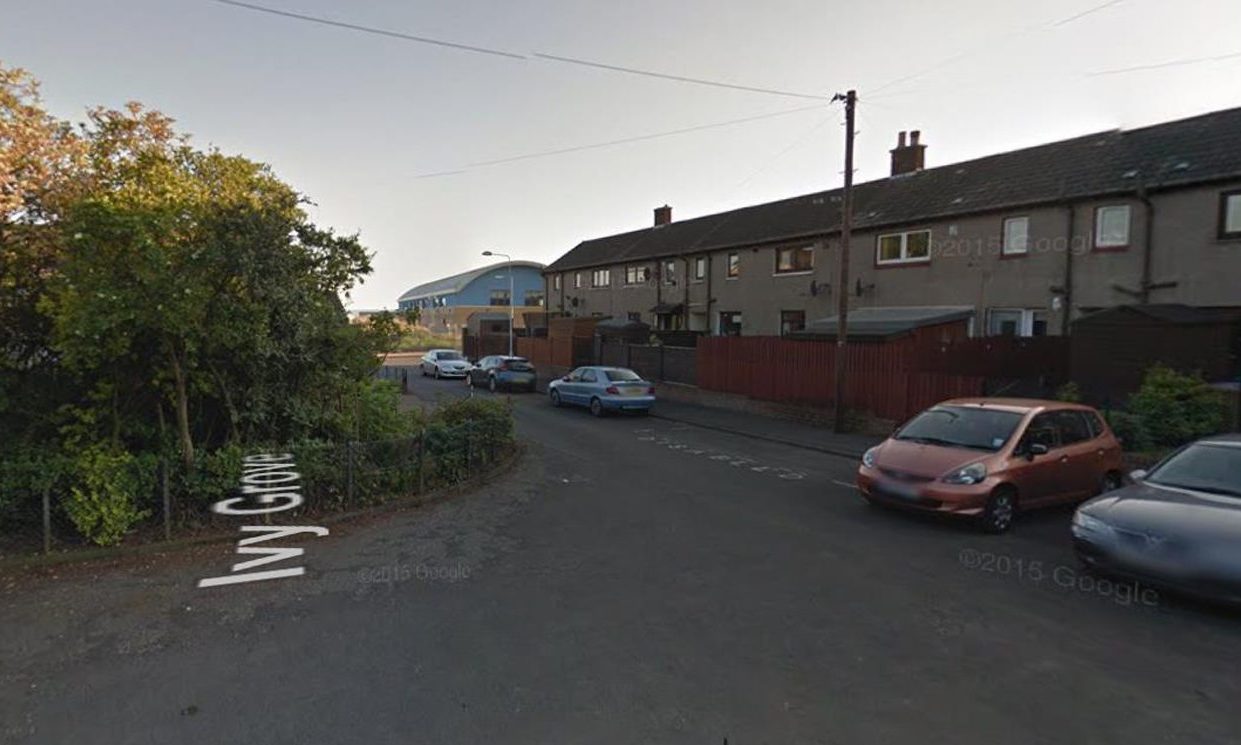Fast fashion may allow us to get our fix of the latest trends at affordable prices, but its long-term implications go much deeper than the desire for a new dress.
This is one of the issues that will be tackled as St Andrews University students come together with Transition St Andrews and local sustainability campaigners to highlight the problem of wearable clothing ending up in landfill or being incinerated. In particular, their #PollutionisPants campaign will celebrate the choice of second-hand clothing over buying new, pants being one notable exception to the rule, thankfully.
Environmental campaigner Anya Hart-Dyke said: “This is a joint initiative between St Andrews University student society ‘Sustainable Style’, Transition St Andrews and Big Dreams Little Footprints. We are asking people to share their efforts to keep clothes out of landfill.”
Finding the joy in pre-loved clothing is a big part of the campaign and the idea is that anyone can take part in dressing up in their favourite second-hand outfit and share it on social media along with the #PollutionisPants hashtag.
It might be a charity shop find, something that you have bought online or even inherited or swapped with a friend. #PollutionisPants aims to change attitudes to second-hand clothing as a good environmental choice that should be celebrated rather than something to be avoided.
Nadja Vitorovic, 20, a physics student who came to St Andrews from her home near London, got involved with the university’s Sustainable Style society as a way of supporting her passion for saving our environment.
She said: “St Andrews is a small town with so much environmental work being done. It’s important to me that we work together when we can to make the biggest impact.
“When it comes to environmentalism for me, there’s something very deep-rooted within me that drives me to be so determined about saving our planet.
“Over the last couple of years I realised my passion is in saving our environment. It started with the physical environment, about how vast and beautiful it is, but it has grown far greater in recent years. I now see the interconnected nature of our problems and how people are suffering globally due to issues with solutions in environmental action.”
Sustainable Style focuses on events which raise awareness of fast fashion and Nadja is currently involved in event co-ordination for the society.
“The best impact of my work in this role has been organising the week-long events throughout Fashion Revolution Week,” she explains. “I’ve been focusing on putting together a panel discussion with three incredible women who are making their mark fighting fast fashion as well as curating clothes up-cycled, with art by a student artist for an exhibition and auction.”
The student has also been inspired to embrace #PollutionisPants by Anya. “Anya has children of her own and she wanted a fun and silly way for adults to support the serious cause with the child-like charm of putting your pants on your head,” she said.
It’s a silly way to highlight an industry that has serious issues. “The lack of regulation in the fast fashion industry paired with its lack of transparency in the supply chain means that there’s a horrendous amount of pollution before clothes ever reach the consumer,” explains Nadja.
“#PollutionisPants is a campaign uniting us in what we can change – our buying habits. With the campaign, we’re highlighting the world of second-hand clothes and we hope to open eyes to the positive impact the switch to second-hand can make. Fashion Revolution Week marks the anniversary of the Rana Plaza factory collapse and focuses on the fashion industry’s mass violation of human rights.
“I absolutely love working in environmentalism and working on #PollutionisPants with Anya, Sam and Muba has been no exception. Although there is real seriousness in the cause we’re fighting for, with this team we have managed to have a lot of fun.”
Working with Nadja on the project is fellow student and passionate environmentalist Muba Mirzaeva. “I’m coming to St Andrews from Uzbekistan to study economics and sustainable development,” she said. “Being able to study economics and sustainable development simultaneously is crucial for me because I want to help policymakers reimagine economic models and policies through a more environmentally-friendly lens one day.”
The impact of human consumption and waste first struck Muda when she was a teenager living in Scandinavia. “I moved to Denmark and was culturally shocked by people’s relationship with food waste there,” she recalls. “I thought it was wild that a lot of Danes I met would throw out perfectly edible leftovers instead of keeping them for the next day.
“Back in Uzbekistan, throwing out so much food would be unthinkable. I tried to make some small-scale impacts in my friends circle, like normalising eating leftovers and not buying more than you can eat.
“This made me appreciate the importance of sensible consumption. Since then I have been conscious about consuming reasonably and not in excess, which eventually led me to care about excessive clothing production and fast fashion.”
Muba embraced the idea of buying items second-hand and resisting the trend of impulse buying of unnecessary clothes. “I once organised a clothing flea market in high school to promote the reuse of clothing in our school.”
She has been working with Nadja and Transition St Andrews on #PollutionisPants in her role as events co-ordinator with Sustainable Style. “At Sustainable Style, we urge our peers to consider the ethical implications of fast fashion and challenge excessive clothing consumption.
“We also advocate for reusing and repairing old clothes through our social media activism and mending workshops. Transition and Sustainable Style work towards similar sustainable objectives, so our collaboration has been well received.”
Muba was taken by Anya’s idea for the #PollutionisPants campaign from the outset. “I absolutely adored this idea and the silly notion behind it,” she enthuses.
“I think this initiative is perfect for engaging the wider St Andrews community with a particular focus on families and children. The lack of context behind Pollution Is Pants urges people to draw the links between clothing and pollution, so essentially, Pollution is Pants is a thinking exercise. If you google Pollution is Pants, a bunch of articles pops up talking about clothing microplastics polluting our lives, or pants being produced to last for short periods of time.
“All of these are terrible for the environment, as they create too much waste for our homes and our landfills. The way I see it is Pollution Is Pants is not merely about pants; it’s about clothing in general. The whole initiative is very open to interpretation, but it encourages you to explore the relationship between pollution and clothing.”
Muba also likes the play on words that pants can bring to speakers of American English versus those who grew up with more of a UK slant on the language.
“I find it hilarious that Pollution Is Pants can be interpreted differently based on the kind of English you speak. My English is more Americanised, hence the word ‘pants’ means trousers to me.”
The light-hearted approach to bringing the issue of fast and disposable fashion into the spotlight is something that Muba hopes will help to inspire others to get involved.
“Making this happen was fun,” she says, “and I hope that this initiative brings a lot of kids together with their families for this light-hearted project. I enjoyed taking the selfie because I like doing silly things. Although it would probably be slightly embarrassing if someone from the uni sees my selfie with no context.”
Fashion Revolution week runs from April 19 to 25. #PantstoPollution is just one of the initiatives running in St Andrews to coincide with the event.
Other topics covered will include kids’ clothes and school uniform, a look at who makes our clothes and ideas on how to repair torn or damaged garments rather than binning them.
Find out more about the campaign at bigdreamslittlefootprints.org/pollution-is-pants For Transition St Andrews see transitionsta.org
Find out more about Fashion Revolution Week at fashionrevolution.org
